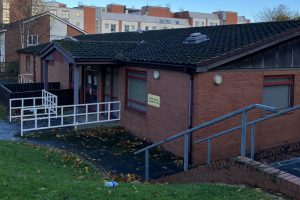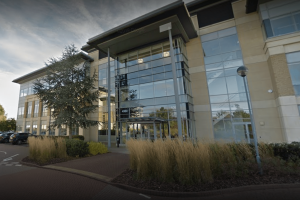Government urged to speed up HS2

THE leaders of the “Core Cities” – eight major English cities – have urged David Cameron to speed up the timetable for High Speed 2 and make sure the wider regions can benefit from the new line.
The plans for the northern arm of £33bn High Speed 2 rail link were unveiled yesterday.
The leaders of Birmingham, Bristol, Leeds, Liverpool, Manchester, Newcastle, Nottingham, and Sheffield met Mr Cameron following the announcement and told him to maximise the potential for the UK’s big cities. Aside from pushing on with HS2, they want to see links to high speed hubs, including more electrified lines.
They have urged the government to align this “once-in-a-lifetime infrastructure investment” with other plans for growth and jobs in “core city” urban areas which are said to deliver 27% of the economy.
But they say they need “tangible commitments” so they can start to attract private investors off the back of the project.
Sir Albert Bore, leader of Birmingham City Council and transport lead for the core cities cabinet, said: “To climb out of recession, and at a challenging moment for the public finances, we need a commitment to this stimulus to attract more investment into our great cities, to create jobs and boost growth.
“HS2 is set to be that game-changer for regional economies, but we need tangible commitments so that cities can start to attract private investors off the back of the announcement.”
Meanwhile, Paul Kehoe, the CEO of Birmingham Airport, has used the publication of the route for the second phase of the HS2 high speed rail network to call for a national aviation strategy that complements the massive infrastructure investment.
Welcoming the new route, he said the connectivity of the scheme would transform the economic geography of the UK and enable cities to work more efficiency together.
“Airports are a critical part of this story and we need to build a vision for UK aviation that complements the investment in HS2,” he said.
“HS2 will bring Birmingham Airport within one hour’s journey time of 30% of the UK population and just over half an hour from London. By providing passengers with more choice of where to fly from, it will help us make best use of spare capacity at airports across the UK.
“But to support the growth of our great cities, we need to build a truly integrated air-rail transport system where HS2 links together a network of national airports. This will ensure that cities outside of the South-East have thriving airports to support local businesses to grow and prosper. We will continue to work with the Airports Commission to best establish how HS2 can complement the UK’s aviation strategy.”
His counterpart at the NEC Group, Paul Thandi, said the Government should review the urgency of HS2 if it was to effectively stimulate the economy at the time it most needed it.
“Although the statement has given details of the planned routes north of Birmingham, it marks important progress towards putting in place the essential infrastructure necessary to effectively do business across the UK, Europe and beyond,” he said.
“Whilst it is encouraging to see this type of Keynesian ‘pump priming’ project, the country requires a financial jump-start now. The UK needs investment in projects that will inject money into the economy, raise taxes and create jobs, and it for this reason that I am calling on the Government to challenge the urgency of its timetable for the construction of HS2, and to also put into place more immediate schemes that will provide additional stimulus to the economy to benefit today’s generation.”
He said that for companies like the NEC Group to continue to be a successful and an attractive proposition, the government had to create and sustain a positive economic environment.
Richard Halstead, Midlands region director of EEF, echoed this by saying that having made a commitment to both stages of HS2 by extending it to the North, the government must now demonstrate that it has a credible plan to deliver the project on time.
“This would send an important signal to business about Britain as a place to invest and is not only a major strategic investment in the UK’s infrastructure but, a major commitment of taxpayers’ money and test of the coalition’s industrial policy. The government must therefore ensure that as many as possible of the benefits associated with HS2 are realised by businesses based in Britain,” he said.
Likewise, Wouter Schuitemaker, Investment Director at Business Birmingham, said: “The Government must press ahead with infrastructure projects such as HS2 without delay, as they improve the attractiveness of regional cities as destinations for investment. Cities like Birmingham provide a cost-effective, high quality alternative to London, but are still within easy reach of the capital with the arrival of HS2.
“The competition between European locations to attract inward investment is stronger than ever, and we cannot afford to lose out because schemes such as HS2 are mired in red tape and delays.”
The preferred route of phase two will extend north of Birmingham to Manchester and Leeds.
[VIDEO: 614]The Department for Transport has outlined five stations at Manchester, Manchester Airport, Toton in the East Midlands, Sheffield and Leeds.
In addition, it is proposed that Crewe will be connected directly with the high-speed line via a ‘dedicated link’ to link up with standard trains, reducing journey times to Liverpool and Glasgow.
Stoke-on-Trent City Council said the economic benefits would be far greater if the Crewe link was positioned between Junctions 15 and 16 of the M6 to serve the largest economy in the region.
The city council has campaigned to the Government for one of the high-speed stations to be built between the two junctions.







